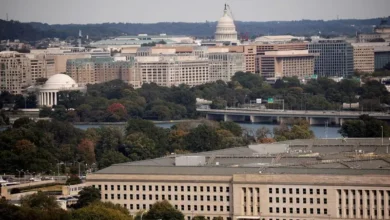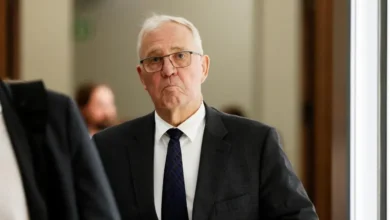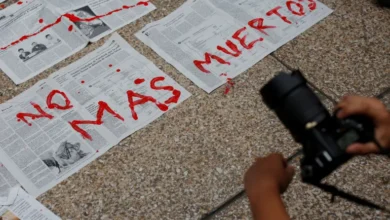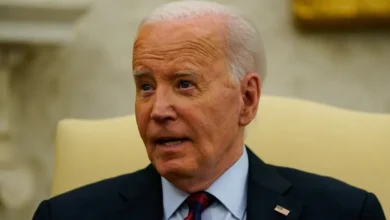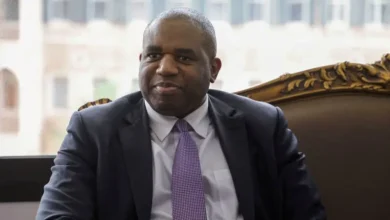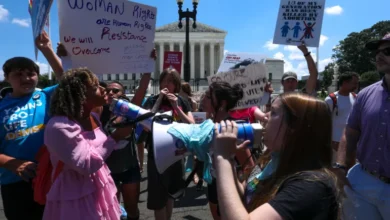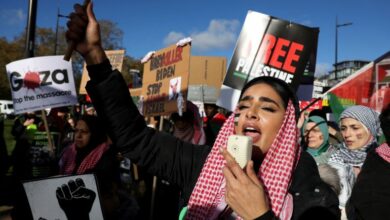US police surround family home of Maine mass shooting suspect
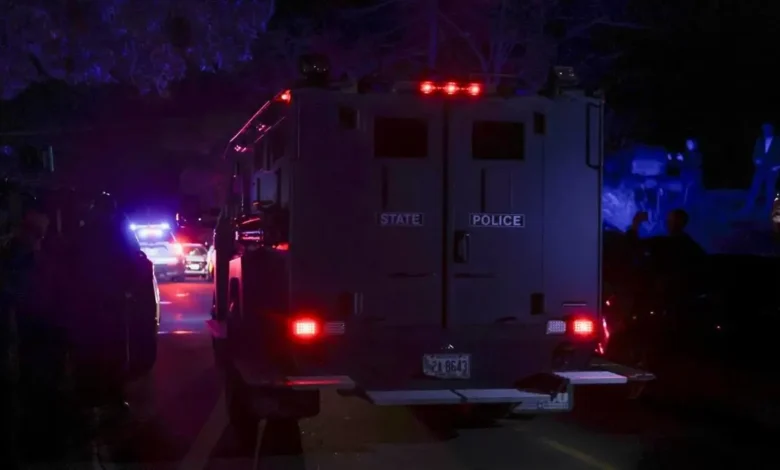
Police on Thursday surrounded the family home of the man accused of gunning down 18 people at a bowling alley and a bar in the US state of Maine, as President Joe Biden mourned “yet another senseless and tragic mass shooting.”
It was not immediately known if 40-year-old suspect Robert Card was inside the house, as law enforcement agents were heard calling “please come outside” and “we don’t want anyone to get hurt” over a loudspeaker.
The action came 24 hours after Card allegedly went on a rampage in the small northeastern city of Lewiston, culminating in the deadliest mass shooting this year in America. Thirteen people were also wounded.
Law enforcement surrounded the Card family home in Bowdoin, near Lewiston, sending up drones and a helicopter and ordering journalists gathered nearby to switch off their lights. State police said the announcements from agents on the scene were “standard search warrant announcements” and not confirmation that Card was inside.
A wide area around Lewiston was locked down during the tense search as authorities erected roadblocks, ordered schools and businesses closed, and told residents to stay indoors.
Governor Janet Mills said the suspect was “considered armed and dangerous, and police advised that Maine people should not approach him under any circumstances.”
Card was seen in surveillance footage pointing a semi-automatic rifle as he walked into the Just-in-Time bowling alley on Wednesday.
One longtime neighbor, Dave Letarte, said news of the shooting “floored me.”
“I would have never expected that from him,” he told AFP of Card.
Joseph Walker, a manager at the Schemengees Bar & Grille, was among those killed the night before, his father Leroy Walker told NBC News.
Walker said his family was “suffering and dying in a nightmare we don’t understand.
“We were up all night. We didn’t know where to go, who to turn to,” he said.
Terror at bowling alley
News outlets broadcast footage of people fleeing in terror from the bowling alley after the shooting started Wednesday evening.
One survivor told television reporters that he was 15 feet (5 meters) from the gunman when he opened fire. He thought at first it was a balloon popping.
“And as soon as I turned and saw it was not a balloon and he was holding a weapon, I just booked it down the lane and I slid basically into where the pins are and climbed up into the machine and was on top of the machines for about 10 minutes until the cops got there,” he said.
Card is a member of the US Army Reserve. US media reported that he had recently been sent for psychiatric treatment after he said he was hearing voices.
Hundreds of police in military-style camouflage gear and FBI agents flooded the search zone in what Lewiston police chief David St. Pierre called “an all-hands-on-deck approach.”
Biden called Maine’s governor to offer federal support, and ordered flags to be lowered to half-staff at the White House and all government buildings.
“Once again, our nation is in mourning after yet another senseless and tragic mass shooting,” he said.
Biden added that the gun violence that plagues the United States “is not normal, and we cannot accept it,” urging lawmakers to pass a bill banning assault weapons and high-capacity magazines.
Daily mass shootings
Police and rescuers reportedly arrived at the bowling alley at about 7:15 pm in response to an active shooter, and then received reports of another shooting at the Schemengees Bar & Grille.
In surveillance images of Card at the bowling alley, he appeared calm and composed as he moved through the doorway with his rifle raised.
Officers located a “vehicle of interest” — a white sport utility vehicle — in Lisbon, a town around eight miles (12 kilometers) from Lewiston.
The shooting is one of the deadliest in the US since 2017, when a gunman opened fire on a crowded music festival in Las Vegas, killing 60 people.
Mass shootings are alarmingly common in the United States, a country with more guns than people, and attempts to clamp down on their spread are always met with stiff resistance.
The country has recorded at least 565 mass shootings this year, according to the Gun Violence Archive, a nongovernmental organization that defines a mass shooting as four or more people wounded or killed.
Efforts to tighten gun controls routinely run up against opposition from Republicans, staunch defenders of the constitutional right to bear arms.
The political paralysis endures despite widespread outrage over recurring shootings.
